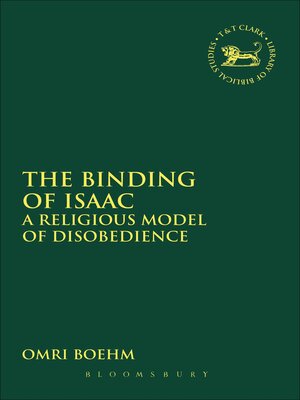The Binding of Isaac
ebook ∣ A Religious Model of Disobedience · The Library of Hebrew Bible/Old Testament Studies
By Omri Boehm

Sign up to save your library
With an OverDrive account, you can save your favorite libraries for at-a-glance information about availability. Find out more about OverDrive accounts.
Find this title in Libby, the library reading app by OverDrive.



Search for a digital library with this title
Title found at these libraries:
| Loading... |
Traditional interpretations in both Judaism and Christianity argue that the Akedah presents not only an ethical question but also an ethical reply. But for the intervention of the angel, Abraham would have killed his son. Obedience to God take precedence over morality as humanly conceived. Yet, the angel of YHWH that appears to Abraham is a later addition to the text; thus, in the original narrative Abraham actually disobeys the divine command to slay his son, and sacrifices a ram instead.
The first part of the book shows how the "original" version of the narrative did not contain the angelic figure. The second part of the book re-examines various religious interpretations of the text to show that exegetes such as Maimonides and his followers did point out Abraham's disobedience. According to these writers the esoteric layer of the story in fact declares that disobedience to God's command was Abraham's true affirmation of faith. In the third part of the book, Boehm re-opens the philosophical debate between Kant and Kierkegaard. Boehm concludes the book by contending that the monotheistic model of faith presented by Abraham was actually a model of disobedience.
The first part of the book shows how the "original" version of the narrative did not contain the angelic figure. The second part of the book re-examines various religious interpretations of the text to show that exegetes such as Maimonides and his followers did point out Abraham's disobedience. According to these writers the esoteric layer of the story in fact declares that disobedience to God's command was Abraham's true affirmation of faith. In the third part of the book, Boehm re-opens the philosophical debate between Kant and Kierkegaard. Boehm concludes the book by contending that the monotheistic model of faith presented by Abraham was actually a model of disobedience.






